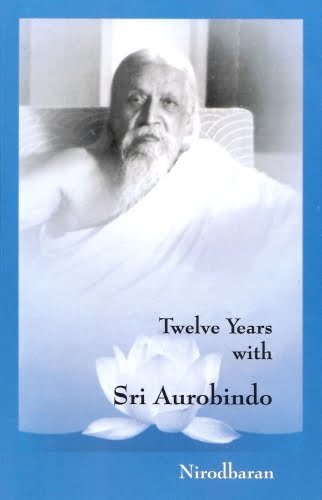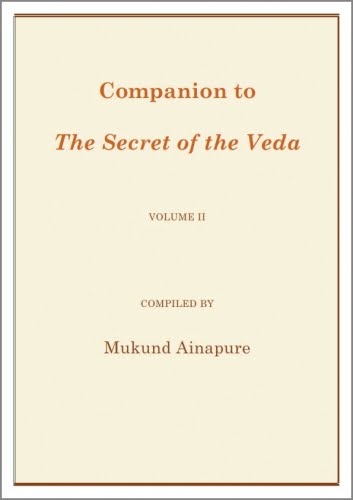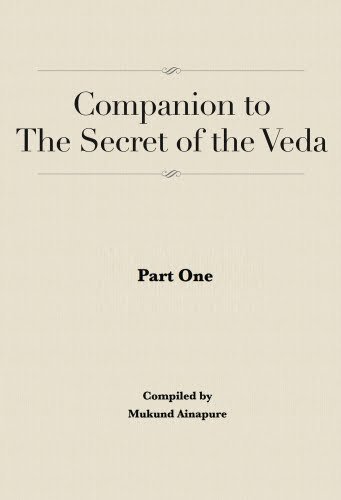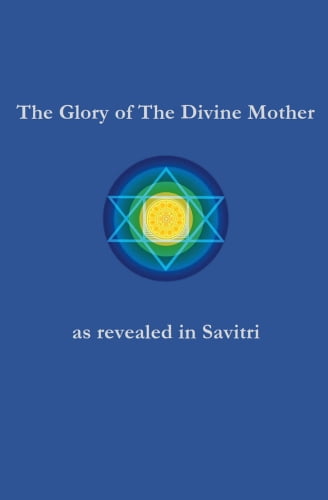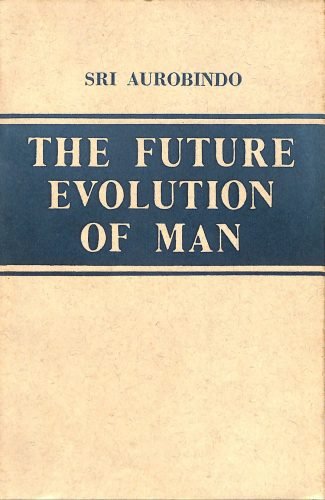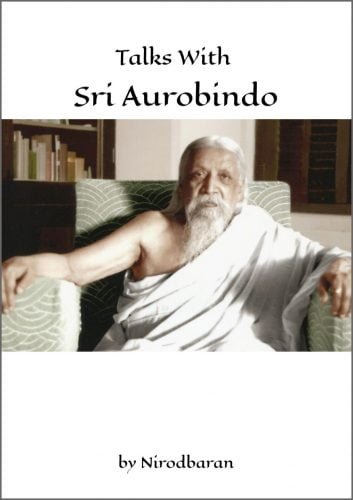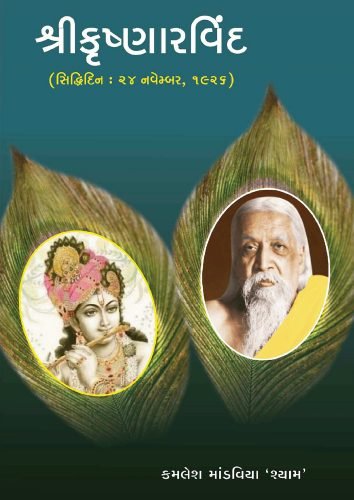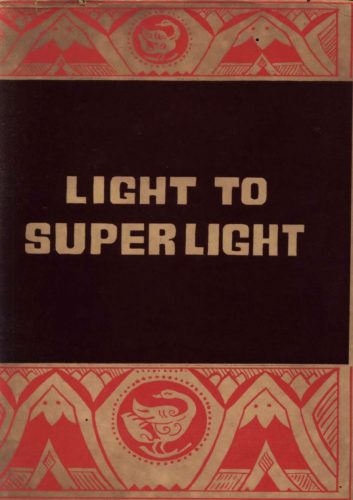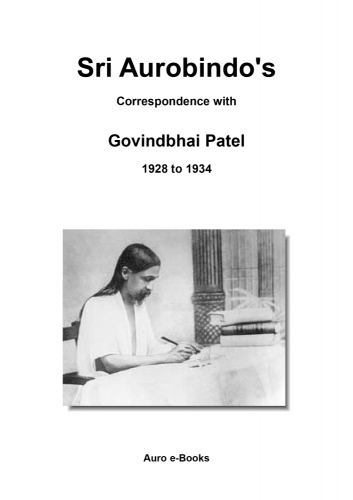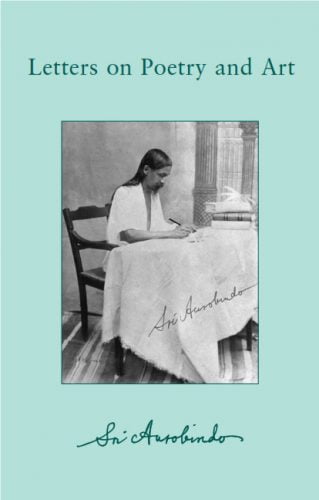
Letters on Poetry and Art
Letters on Poetry and Art comprises letters written by Sri Aurobindo on poetry and other forms of literature, painting and the other arts, beauty, aesthetics and the relation of these to the practice of yoga. He wrote most of these letters to members of his ashram during the 1930s and 1940s, primarily between 1931 and 1937. Only around a sixth of the letters were published during his lifetime. The rest have been transcribed from his manuscripts.
The present volume is the first collection of Sri Aurobindo’s letters on poetry, literature, art and aesthetics to bear the title Letters on Poetry and Art. It incorporates material from three previous books: (1) Letters on Poetry, Literature and Art; (2) Letters on “Savitri”, and (3) On Himself (section entitled “The Poet and the Critic”). It also contains around five hundred letters that have not appeared in any previous collection published under his name. The arrangement is that of the editors. The texts of the letters have been checked against all available manuscripts and printed versions.
Book Details
Author: Sri Aurobindo
Print Length: 781 pages
Publisher: Sri Aurobindo Ashram
Contributor: Blindshiva, Alexey, Krishna
Book format: PDF, ePub, Kindle
Language: English
Book Download
Contents
Part One. Poetry and Its Creation
Section One, The Sources of Poetry
- Poetic Creation
- Sources of Inspiration
- Overhead Poetry
- Examples of Overhead Poetry
Section Two, The Poetry of the Spirit
- Psychic, Mystic and Spiritual Poetry
- Poet, Yogi, Rishi, Prophet, Genius
- The Poet and the Poem
Section Three, Poetic Technique
- Technique, Inspiration, Artistry
- Rhythm
- English Metres
- Greek and Latin Classical Metres
- Quantitative Metre in English and Bengali
- Metrical Experiments in Bengali
- Rhyme
- English Poetic Forms
- Substance, Style, Diction
- Grades of Perfection in Poetic Style
- Examples of Grades of Perfection in Poetic Style
Section Four, Translation
- Translation: Theory
- Translation: Practice
Part Two. On His Own and Others’ Poetry
Section One, On His Poetry and Poetic Method
- Inspiration, Effort, Development
- Early Poetic Influences
- On Early Translations and Poems
- On Poems Published in Ahana and Other Poems
- Metrical Experiments
- On Some Poems Written during the 1930s
- On Savitri
- Comments on Some Remarks by a Critic
- On the Publication of His Poetry
Section Two, On Poets and Poetry
- Great Poets of the World
- Remarks on Individual Poets
- Comments on Some Examples of Western Poetry (up to 1900)
- Twentieth-Century Poetry
- Comments on Examples of Twentieth-Century Poetry
- Indian Poetry in English
- Poets of the Ashram
- Comments on the Work of Poets of the Ashram
- Philosophers, Intellectuals, Novelists and Musicians
- Comments on Some Passages of Prose
Section Three, Practical Guidance for Aspiring Writers
- Guidance in Writing Poetry
- Guidance in Writing Prose
- Remarks on English Pronunciation
- Remarks on English Usage
- Remarks on Bengali Usage
Part Three. Literature, Art, Beauty and Yoga
Section One, Appreciation of Poetry and the Arts
- Appreciation of Poetry
- Appreciation of the Arts in General
- Comparison of the Arts
- Appreciation of Music
Section Two, On the Visual Arts
- General Remarks on the Visual Arts
- Problems of the Painter
- Painting in the Ashram
Section Three, Beauty and Its Appreciation
- General Remarks on Beauty
- Appreciation of Beauty
Section Four, Literature, Art, Music and the Practice of Yoga
- Literature and Yoga
- Painting, Music, Dance and Yoga
Appendixes
- Appendix I
- Appendix II
- Appendix III
Note on the Texts
Sample
Letters on Poetry and Art
Three Elements of Poetic Creation
Poetry, or at any rate a truly poetic poetry, comes always from some subtle plane through the creative vital and uses the outer mind and other external instruments for transmission only. There are three elements in the production of poetry; there is the original source of inspiration, there is the vital force of creative beauty which contributes its own substance and impetus and often determines the form, except when that also comes ready made from the original sources; there is, finally, the transmitting outer consciousness of the poet. The most genuine and perfect poetry is written when the original source is able to throw its inspiration pure and undiminished into the vital and there takes its true native form and power of speech exactly reproducing the inspiration, while the outer consciousness is entirely passive and transmits without alteration what it receives from the godheads of the inner or the superior spaces. When the vital mind and emotion are too active and give too much of their own initiation or a translation into more or less turbid vital stuff, the poetry remains powerful but is inferior in quality and less authentic. Finally, if the outer consciousness is too lethargic and blocks the transmission or too active and makes its own version, then you have the poetry that fails or is at best a creditable mental manufacture. It is the interference of these two parts either by obstruction or by too great an activity of their own or by both together that causes the difficulty and labour of writing. There would be no difficulty if the inspiration came through without obstruction or interference in a pure transcript — that is what happens in a poet’s highest or freest moments when he writes not at all out of his own external human mind, but by inspiration, as the mouthpiece of the Gods.
The originating source may be anywhere; the poetry may arise or descend from the subtle physical plane, from the higher or lower vital itself, from the dynamic or creative intelligence, from the plane of dynamic vision, from the psychic, from the illumined mind or Intuition, — even, though this is the rarest, from the Overmind widenesses. To get the Overmind inspiration is so rare that there are only a few lines or short passages in all poetic literature that give at least some appearance or reflection of it. When the source of inspiration is in the heart or the psychic there is more easily a good will in the vital channel, the flow is spontaneous; the inspiration takes at once its true form and speech and is transmitted without any interference or only a minimum of interference by the brain-mind, that great spoiler of the higher or deeper splendours. It is the character of the lyrical inspiration, to flow in a jet out of the being — whether it comes from the vital or the psychic, it is usually spontaneous, for these are the two most powerfully impelling and compelling parts of the nature. When on the contrary the source of inspiration is in the creative poetic intelligence or even the higher mind or the illumined mind, the poetry which comes from this quarter is always apt to be arrested by the outer intellect, our habitual thought-production engine. This intellect is an absurdly overactive part of the nature; it always thinks that nothing can be well done unless it puts its finger into the pie and therefore it instinctively interferes with the inspiration, blocks half or more than half of it and labours to substitute its own inferior and toilsome productions for the true speech and rhythm that ought to have come. The poet labours in anguish to get the one true word, the authentic rhythm, the real divine substance of what he has to say, while all the time it is waiting complete and ready behind; but it is denied free transmission by some part of the transmitting agency which prefers to translate and is not willing merely to receive and transcribe. When one gets something through from the illumined mind, then there is likely to come to birth work that is really fine and great. When there comes with labour or without it something reasonably like what the poetic intelligence wanted to say, then there is something fine or adequate, though it may not be great unless there is an intervention from the higher levels. But when the outer brain is at work trying to fashion out of itself or to give its own version of what the higher sources are trying to pour down, then there results a manufacture or something quite inadequate or faulty or, at the best, “good on the whole”, but not the thing that ought to have come.
2 June 1931
Creation by the Word
The word is a sound expressive of the idea. In the supra-physical plane when an idea has to be realised, one can by repeating the word-expression of it, produce vibrations which prepare the mind for the realisation of the idea. That is the principle of the Mantra and of japa. One repeats the name of the Divine and the vibrations created in the consciousness prepare the realisation of the Divine. It is the same idea that is expressed in the Bible, “God said, Let there be Light, and there was Light.” It is creation by the Word.
6 May 1933
…
